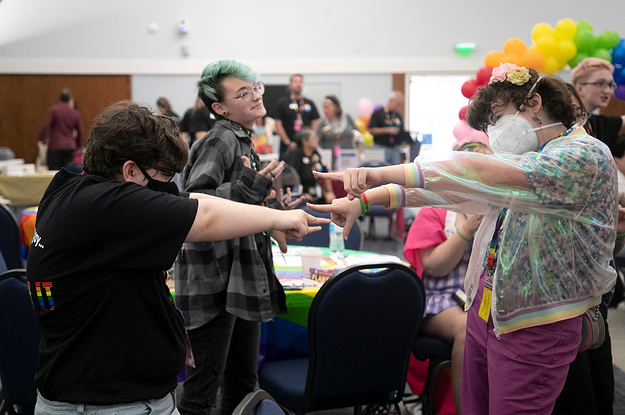Florida has implemented several laws that restrict LGBTQ rights and have had a significant impact on the state’s education system. One of the most well-known laws is the Parental Rights in Education Act, commonly referred to as the “Don’t Say Gay” law. This law prohibits classroom instruction on sexual orientation or gender identity for children up to the third grade and restricts discussions on these topics for older students to be age-appropriate. The law has created a chilling effect in classrooms, with teachers and school officials fearing lawsuits and avoiding certain topics, even going so far as to hide LGBTQ-related books on shelves.
In addition to the “Don’t Say Gay” law, there are other laws that have further marginalized LGBTQ students in Florida. One law empowers residents to lodge objections to material in classrooms or school libraries, leading to efforts by conservative groups to ban books that discuss LGBTQ or race issues. Bookshelves have been covered to shield them from view as their contents await screening and approval. Transgender and nonbinary children have been particularly affected, with a law banning transgender girls from playing in sports teams and a ban on gender-affirming medical care for transgender minors coming into effect. These laws have left LGBTQ students feeling dismayed and have had a detrimental impact on their mental health.
The Trevor Project, a suicide prevention nonprofit, conducted a survey that found alarming rates of suicidal ideation and attempts among LGBTQ youth in Florida. According to the survey, 45% of LGBTQ youth seriously considered suicide in the past year, with even higher rates for transgender and nonbinary youth. The report attributes these high rates to social stigma and mistreatment, as well as the negative impact of discriminatory laws and politics. LGBTQ youth are not inherently at a higher risk for suicide, but external factors contribute to their increased vulnerability.
The situation for LGBTQ individuals in Florida is not improving, as there are still 10 more bills pending in the state legislature that the ACLU has deemed harmful to LGBTQ people. These bills include restrictions on bathroom use for transgender individuals and a broad bill that could require all transgender youth to detransition. If passed, parents seeking gender-affirming care for their children in another state could have their custody rights challenged. The ACLU and other advocates are fighting against these discriminatory bills, recognizing the urgent need for support and resources for LGBTQ youth.
In light of these challenges, a conference in Naples, Florida, held a discussion on gender-affirming care, which was deemed critically important by GLSEN chapter director Shaw. The discussion aimed to provide lifesaving information to LGBTQ youth who may be desperately seeking support. Nurse Mishya Nishioka, the director of gender-affirming hormone therapy services for Planned Parenthood, shared information on hormone options, fertility preservation, and updating legal documents to reflect gender identity. This conference and similar initiatives are crucial in providing resources and support for LGBTQ youth in a hostile environment.









